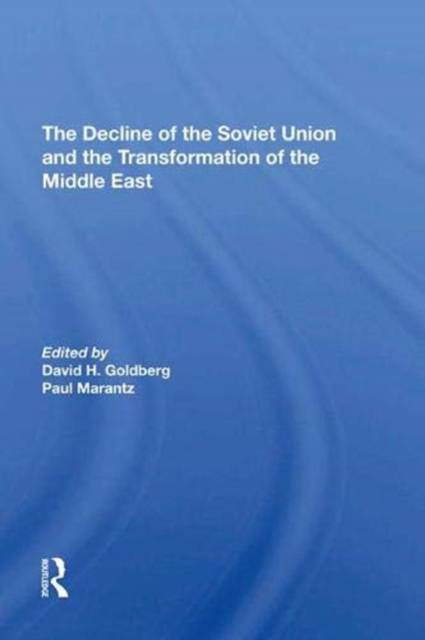
- Afhalen na 1 uur in een winkel met voorraad
- Gratis thuislevering in België vanaf € 30
- Ruim aanbod met 7 miljoen producten
- Afhalen na 1 uur in een winkel met voorraad
- Gratis thuislevering in België vanaf € 30
- Ruim aanbod met 7 miljoen producten
Zoeken
The Decline of the Soviet Union and the Transformation of the Middle East
David Howard Goldberg, Paul Marantz, Stephen Page, Stephen Gotowicki
Hardcover | Engels
€ 195,95
+ 391 punten
Omschrijving
For more than three decades, the Soviet Union was a major force in the Middle East, and superpower rivalry exacerbated many of the conflicts endemic to the region. The end of the Cold War and the collapse of the Soviet Union have fundamentally altered the rules of the game in Middle East politics, producing a new fluidity in the region, new diplomatic alignments, and new opportunities for peace. The contributors place recent developments in historical and political context, analyzing changes in Soviet Middle East policy under Gorbachev as well as evaluating developments since the demise of the Soviet Union. The evolution of Moscow's policy toward the Arab states, Israel, the P.L.O., and the U.N. is given special attention. The contributors also examine the emergence of Islamic fundamentalism in the new states of Central Asia and weigh the potential implications of this development for the Middle East. In addition, they discuss security issues related to the transfer of military technology from former Soviet republics to the countries of the Middle East.
Specificaties
Betrokkenen
- Auteur(s):
- Uitgeverij:
Inhoud
- Aantal bladzijden:
- 240
- Taal:
- Engels
Eigenschappen
- Productcode (EAN):
- 9780367291181
- Verschijningsdatum:
- 7/05/2019
- Uitvoering:
- Hardcover
- Formaat:
- Genaaid
- Afmetingen:
- 152 mm x 229 mm
- Gewicht:
- 619 g

Alleen bij Standaard Boekhandel
+ 391 punten op je klantenkaart van Standaard Boekhandel
Beoordelingen
We publiceren alleen reviews die voldoen aan de voorwaarden voor reviews. Bekijk onze voorwaarden voor reviews.











